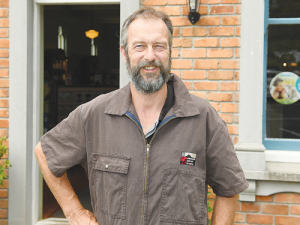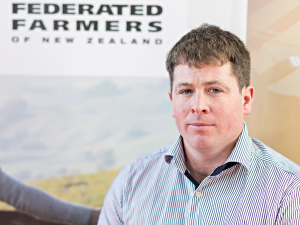Dr Arjan de Wilde, Kaimai Vets, runs three clinics in Waikato and Bay of Plenty.
He says the quantity and quality of magnesium fed to cattle markedly affects their health.
“We try to run a comprehensive mineral programme with our clients, where we do liver biopsies in the autumn and follow that up with blood testing in the spring or pre-mating.
“Over the years I’ve found many issues in our area because of magnesium deficiency.”
De Wilde says during last season a two-three week magnesium shortage had a major effect on herd health.
“Last year I probably saw a lot more grass staggers, or magnesium staggers, than I had in the ten years before. It happened right in the beginning of calving so a lot of guys ran out and had to make do for two weeks and that was serious.
“Your levels go right down and you have to start re-building them because those cows will still milk and still put magnesium in the milk as they always do.”
De Wilde says while the shortage brought things to a head, issues with magnesium deficiency had been increasing over several seasons.
“Now we’re in a second year of seeing cows going down all year round and I don’t know if that is because pastures are changing or people are doing more supplementary feeding.
“There is definitely more need to be doing magnesium all year round rather than just for four weeks from before calving to the end of October.
“A lot of these high input guys are calving two or three times a year and we notice if we take the magnesium out in a dry, they suffer.”
Some good, some useless
Arjan de Wilde points to a big quality difference between magnesium products available to New Zealand farmers. He prefers Australian products, e.g. FIL Nutri-Mag or products from Sibelco, to Chinese products.
“A lot of it depends on the quality of the product you use,” he said. “As a general rule, dare I say, Chinese magnesium is useless and Australian magnesium is good.
“The impurities thing is interesting: I have sent samples to be tested for straight magnesium level and found a big difference in the absolute percentage of magnesium between Chinese and Australian product as well.
“This is what you see in the field: the people who buy Chinese magnesium have to dust at least 150g to prevent the cows falling over.”
De Wilde says having a cow go down with milk fever puts big stress on a dairy farmer.
“You can put a dollar value on it, but the biggest cost is the stress on the farmer… the extra work and the time you [lose].
“I ask farmers ‘what is your reasoning for wanting to do something?’ and they answer ‘I don’t need the stress’.”









